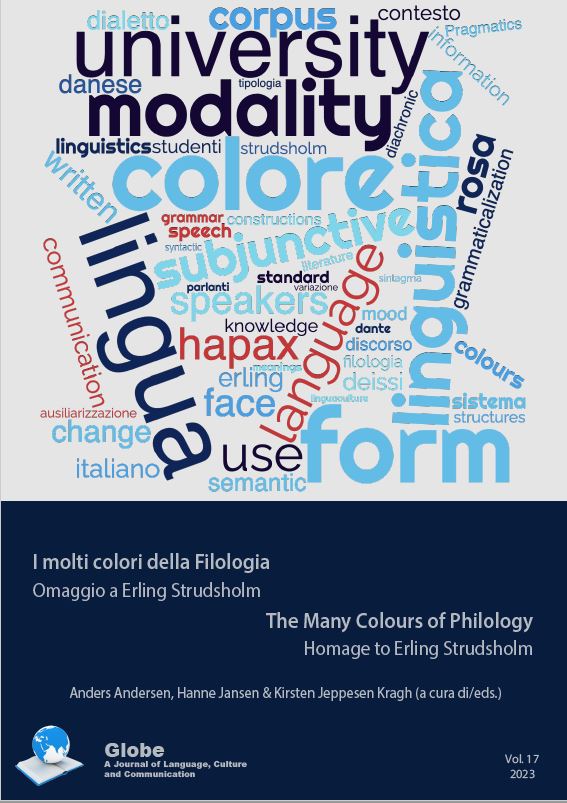I colori della lingua di una semicolta siciliana
DOI:
https://doi.org/10.54337/ojs.globe.v17i.8206Abstract
The aim of the paper is to examine the linguistic varieties present in the autobiographical diary of an illiterate
Sicilian peasant woman, Carolina Drago, who has chosen to entrust her memoirs to the written page. The diary,
composed since 2007, when Carolina Drago was more than 70 years old, contains recipes of gastronomic
preparations, prayers, songs as well as the narration of the most significant episodes of her existence seen
through the eyes and heart of a mother who writes the diary in order to deliver her memories to her children
and grandchildren. The facts described within only partially intertwine the "great history" (e.g. the Spanish
epidemic of the twenties, the Second World War) and dwell rather on the family environment, offering a crosssection
of peasant and popular life that crosses the twentieth century. From a linguistic point of view, Carolina
Drago uses the variety of the repertoire at her disposal: basically, the dialect and popular regional Italian, mixing
the linguistic colours of her poor palette with the enthusiasm of those who want to tell and tell themselves. A
linguistic analysis will also be presented, aimed at demonstrating how the writings of illiterate people allow us
to see that Italian defined as "hidden" by Testa (2014), almost in a karstic way, has continued to evolve
alongside the normative codification anticipating innovative trends.
Downloads
Published
Issue
Section
License
Articles published in Globe: A Journal of Language, Culture and Communication are following the license Creative Commons Attribution-NonCommercial-NoDerivs 3.0 Unported (CC BY-NC-ND 3.0). Authors retain copyright and grant the journal right of first publication with the work simultaneously licensed under a Creative Commons Attribution License: Attribution - NonCommercial - NoDerivs (by-nc-nd). Further information about Creative Commons


